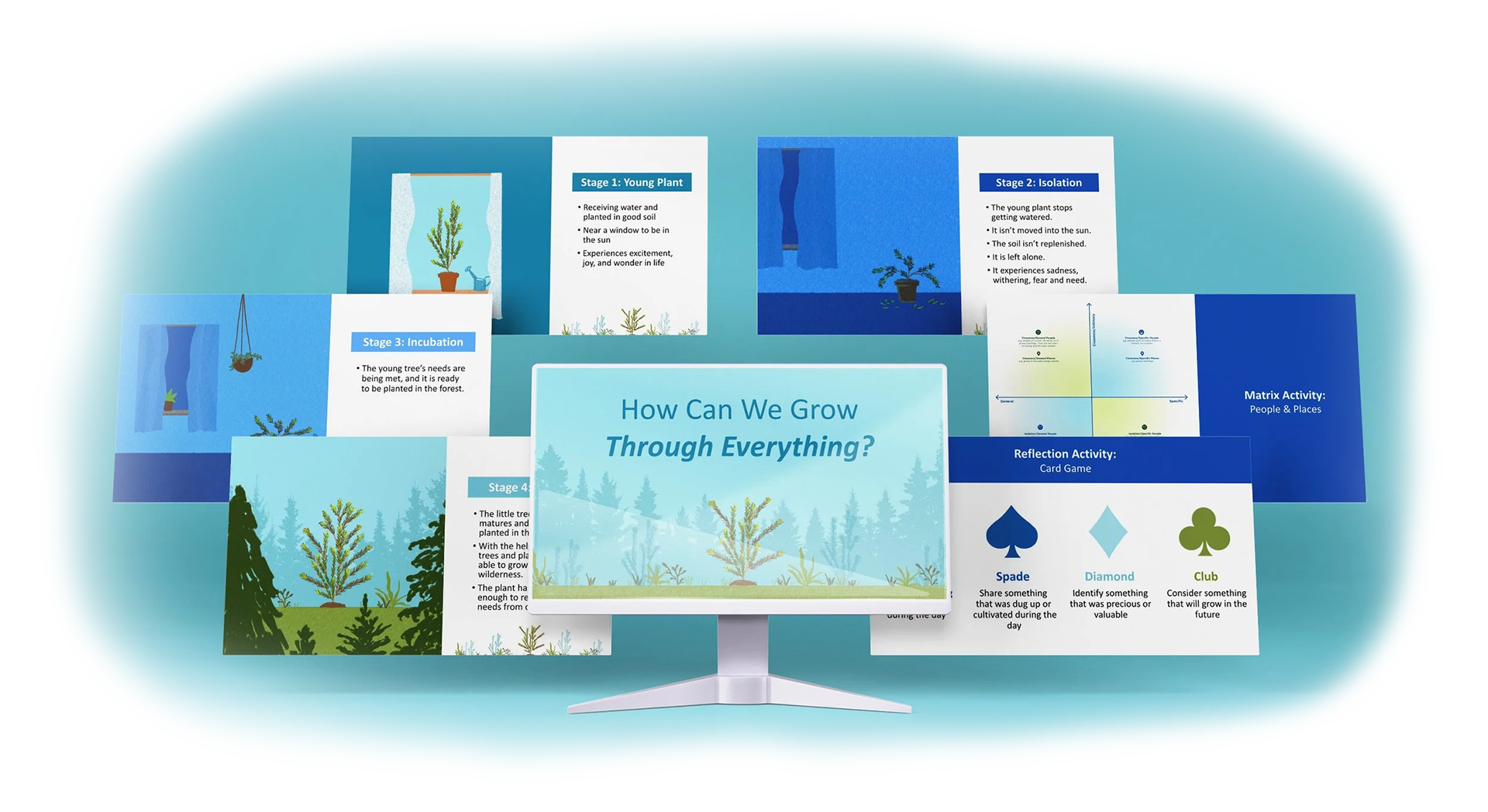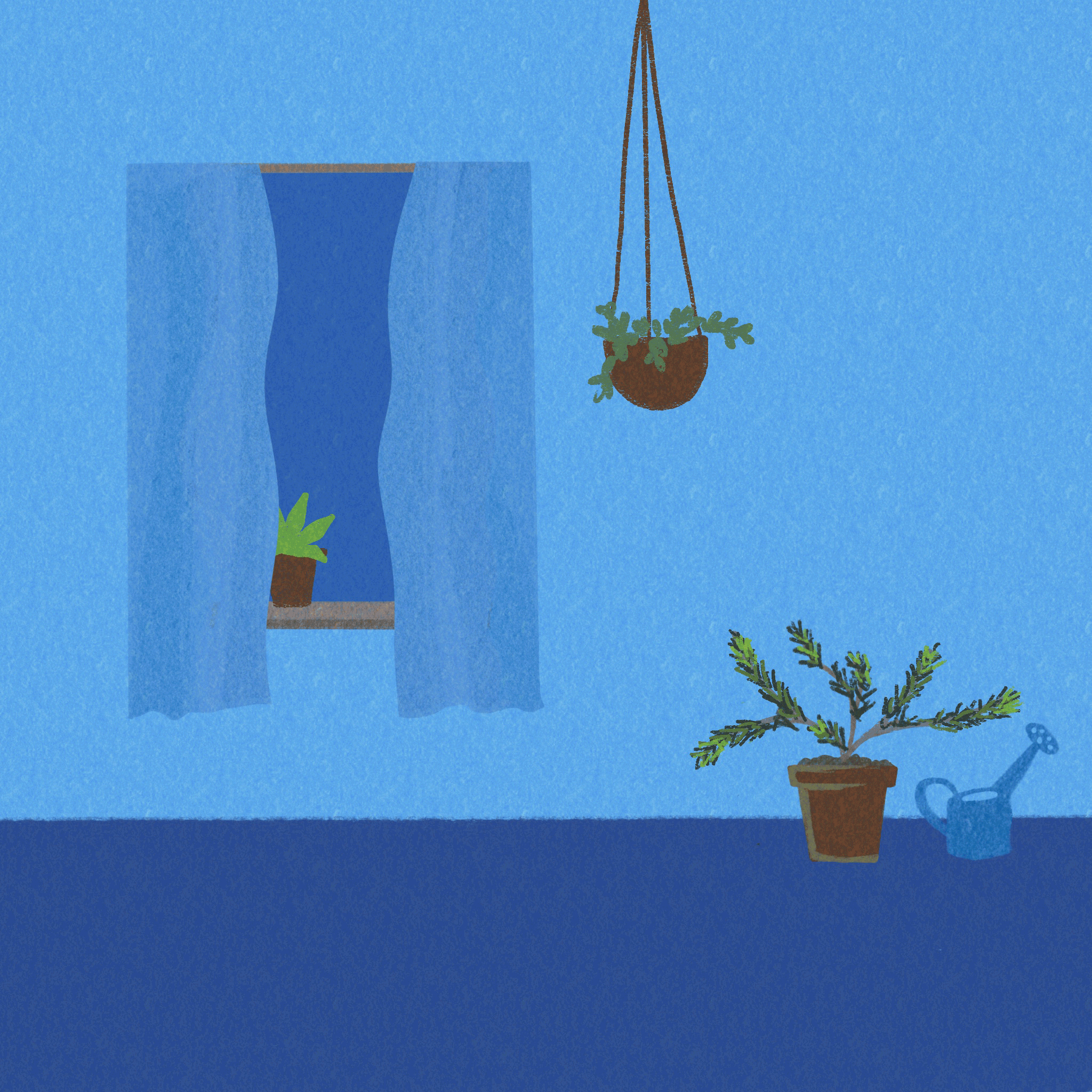< Back to Work
HOPE HOUSE
Strategy & Design Thinking
2023
FROM PROBLEM
TO DESIGN
Our Process
During the spring of 2023, Marion Design Co. partnered with Dr. Jason Runyan and his team of junior and senior psychology students at Indiana Wesleyan University to develop a workshop for Hope House, an addiction recovery organization in Marion. Drawing on significant research by Dr. Runyan’s team, Marion Design Co. created an illustrated presentation and design thinking materials for the workshop.
-
Hope House opened in March 2020. They provide sober living environments for men and women seeking recovery from addiction. With three locations in Marion, Hope House offers support and hope for those struggling with substance use disorder. Hope House is run by executive director Tia Brewer, treasurer Cathy Moritz, and a group of dedicated board members. Dr. Jason Runyan is one of Hope House’s board members as well as a professor of psychology at Indiana Wesleyan University.
growthA main goal of the workshop was to give Hope House residents resources to help them grow in their recovery journeys.
empathy
The workshop needed to resonate with the experiences of people recovering from substance use disorder.
community
Another goal was to remind residents that they are not alone in their recovery, but surrounded by a supporting community.
-
Our team began by meeting with Dr. Jason Runyan and his team of undergraduate students to better understand their vision for the workshop. We defined the main goals of the session and emphasized the importance of approaching the workshop with empathy. With an audience of people seeking help with the healing process of addiction recovery, we aimed to use design thinking to turn the team’s academic data into hands-on and practical information.
We met with Dr. Runyan and his team over the course of the semester. Marion Design Co. offered training on how best to integrate design thinking methodology into the workshop content. During this process, we always came back to the idea of making the workshop as engaging and empathetic as possible.
As Marion Design Co. worked to create presentation slides, we designed colorful illustrations to engage viewers while illustrating key points from the team’s findings. We also designed two matrix activities to be incorporated in the presentation, plus an exit ticket.
After creating a draft of the materials, our team prototyped the presentation with Tia Brewer and two Hope House residents. We then made adjustments based on feedback and created a final version of the materials for Dr. Runyan and his students to use in future workshops.
-
The final workshop design provides an integrated and impactful experience. The presentation features illustrations of a young evergreen tree whose story mirrors the experience of many people dealing with addiction. The tree starts out in a nurturing environment but then experiences isolation and neglect. After this dark period, the tree becomes part of a forest community and begins to grow into a mature, thriving plant. This progression reflects the ups and downs of the workshop participants’ lives, expressing empathy with their experiences.
Two matrix activities pair with the tree’s story to help residents find patterns in their own lives. These activities prompt participants to identify people, places, and activities that move them toward feelings of closeness or isolation. Like the evergreen in the forest, people grow best in nurturing and supportive environments. By connecting the presentation to their lives, participants can uncover ways to cultivate closeness as they make progress in recovery.
Toward the end of the workshop, another design thinking activity encourages more connections. This activity, a card game, prompts participants to reflect on their feelings, values, and hopes. The game lets participants continue uncovering paths toward recovery and healing, while also connecting with those in their community.
Finally, the exit ticket challenges participants to put their learnings into practice. By inviting Hope House residents to take practical steps toward closeness and wellbeing, the exit ticket is meant to inspire hope and a feeling of empowerment.
Dr. Runyan and his team continue to offer the workshop to residents as a way to communicate their findings with those recovering from addiction. This project is a powerful example of the impact design thinking can have on our community. Learn more about Marion Design Co.’s impact on the local community by reading case studies about our work for Greater Grant County and the City of Marion.






